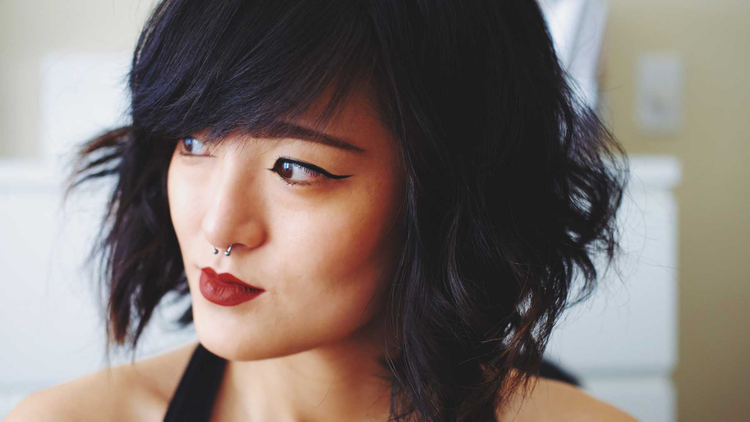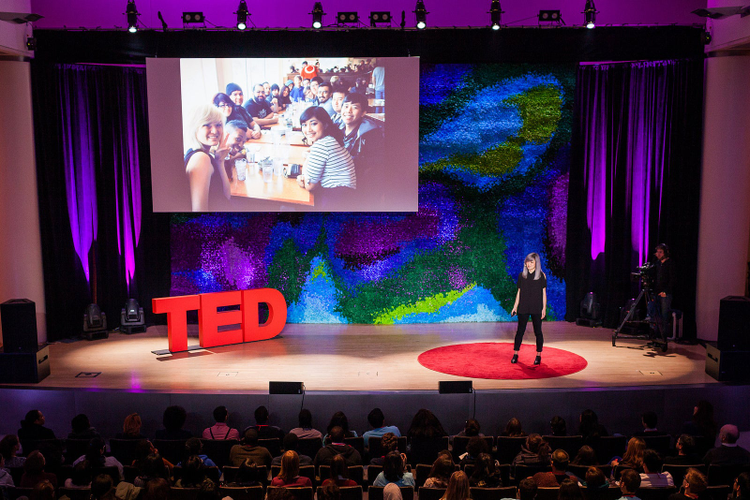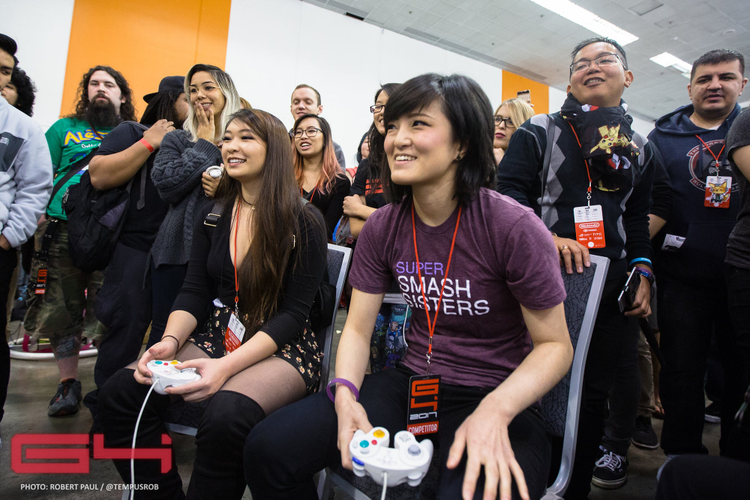Women in UX: Meet Lilian Chen, UX Designer and Competitive Gamer

Long before Lilian Chen was a UX designer at Google, more specifically in YouTube’s live streaming division, she was a quiet, shy girl who didn’t fit in at her Connecticut high school. Her peers bullied her, often mocking her Asian descent by calling her derogatory names.
After school, she would retreat home to put on her proverbial mask, transforming into a competitive gamer who operated under the pseudonym Milktea. Her weapon of choice was Super Smash Brothers Melee, a competitive fighting game comprised of characters from across various Nintendo games and other franchises. As Milktea, Lilian Chen was the opposite of who she was at school. She was confident and vocal, earning her place amongst the rest. She felt like she was finally part of something—a community of likeminded people from around the world that gave her the freedom to be herself.
“My way of figuring out how to fit in was to gamify it, look at my surroundings and adapt,” Chen said. “I think this mentality leant itself to me splitting my identities when I was younger, hiding my gaming half from everything else in my life, and my professional life. Also, the gaming community didn’t always have the best reputation. We used some not-so-good vernacular back in the day, myself included, so I hid this too.”
With mediocre grades and a future that was uncertain, Chen found herself enrolled at the University of Connecticut studying fine art with a concentration in communication design. “I just went to the college that was quite literally next to my high school, like you could see it,” she said. Ivy leagues were not a thought she entertained, as she struggled to figure out what to major in before deciding on design, mostly as a way to pass the time while she contemplated law school.
“I remember telling my family and friends, ‘I don’t want to do design or web design; I don’t want to spend my life sitting in front of a computer.’ But when I was a kid, that’s what I would blow off piano lessons to do, is sit in my room trying to code my LiveJournal into a cool new template, or code other people’s MySpace, because they gave us the freedom to do that,” she said.
Becoming One with Milktea
Ultimately Chen fell in love with design and moved to New York after graduation to work at TED Conferences as a designer. Milktea was still very much a side of herself she kept hidden, but one day she gave a talk to her coworkers (as TED employees are wont to do) about what she did outside of the office.
“They had no idea I had this other alternate life or identity, and it was since then I was like, lets just fuse them both together.”
Chen has since given numerous talks including an actual TED Talk on how she responded to sexism in gaming with empathy and, more recently, a commencement speech at her alma mater about her experiences as a woman in competitive gaming and design.

“Listen,” she told the students in her signature playful style, “I was a quiet, shy girl who designed full-time and then I played video games. It took that revelation of realizing I could make the two ends come together, two of my passions, to really blossom into something. And here I am.”
A Future of Her Own Design
She also told them the story about how, after four years of working at TED, she just up and quit her job.
“I flat out quit in New York with nothing lined up, on a good note of course,” she said. “I just live streamed video games all summer. I was working on my own stuff, on my website, and I was looking for things I could design to add to my portfolio, because that’s what you do when you apply to jobs as a designer.”
One of the ideas she was playing around with was designing overlays for Smash Brothers. “I made a few just for myself and I made them using just html and CSS, so it makes them easier to customize. Most people typically create a flat PNG. I was like this is great, it makes it so much easier to tweak on the fly,” she said.
She wrote a blog post about it and started thinking about starting her own business where she designed overlays for people. Instead, she ended up doing some contract work for Smash.gg, a start-up that created a platform for managing competitive gaming tournaments. She started writing more about her ideas and experiences all while continuing to attend gaming events. It was at one of these tournaments that she met people from YouTube’s gaming team. At this point, she had started immersing herself in the world of user experience design and teaching herself all the things she hadn’t learned as a visual designer at TED. She mentioned to the YouTube team that UX was something she was interested in, especially the part about using research and data to empower design.
“I had a hunch that UX would be really good for me. It would be stimulating. It would be the right set of challenges for me to embark down as a next step,” she said. “I ended up in the [YouTube] office getting a tour and then before I knew it, I was hired literally a few months later. It came out of nowhere. I had actually just moved to Brooklyn and didn’t even fully unpack and then packed again and moved to San Francisco. Life just comes at you with crazy things sometimes.”
She started out on YouTube’s gaming team, but now works on the live streaming side, which she says couldn’t be a more perfect fit for her. She now approaches design with a gaming mindset, and vice versa—approaching gaming with a designer’s mindset, two skills that lend themselves well to one another.
Getting More Women Involved in Competitive Gaming
Working in tech has brought some parallel challenges that she experienced as a competitive gamer. Neither is immune to sexism and racism, though, she says, it is much more noticeable in the gaming community. This is one of the reasons why she co-founded Smash Sisters, a play off the Super Smash Brothers name, to encourage new and veteran female “smashers” alike to participate in regional “crew battles.”
“In gaming the topic of women in events, especially in terms of competitive gaming, can be quite controversial,” she said.

More than that, Smash Sisters is about bringing women together and empowering them to get involved in the competitive gaming community. It was not created with the intention of combatting harassment in gaming, but rather to encourage women to get together and just play the game. In the past year, women have organized independent tournaments across the country.
But to really leave a mark, the team recognizes feeding this community back into the co-ed scene is necessary in order to enhance the entire gaming community.
“We do not want to create this syphoned, segregated women’s playpen on the side—that would be the antithesis of everything we want,” Chen said. “I love this community and apparently I have the ability to help it. It’s kind of at this point my responsibility to do what I can for this community. I know very openly that I’m not shaking the whole damn world with this, but if I have a hold here within Smash Brothers and I can do something to help, I’m doing it.”
Learning from the Past
When Chen looks back on her TED Talk, she sees a version of herself that is reminiscent of a young Milktea, noticing that when she speaks she doesn’t sound that confident. I ask her, what do you know now that you wish you knew then?
“I wish I understood the meaning of fake it ’til you make it,” she said. “It took me a long time to understand that a lot of people who are in the limelight talking about something they’re passionate about, they’re not just born an expert on it. Knowledge comes with time and a lot of people are kind of in my shoes, we’re all in the same shoes of not being entirely sure, but pretty damn sure. A friend told me recently, and it’s kind of marked my view on everything, that confidence is not just knowing everything right now. He said it’s more knowing that you can do better next time.”
It’s a frame of mind that echoes her life’s philosophy and her work as a UX designer.
“I treat everything now like I gamify it,” she said. “I look at what I could have done better, I think about those improvements and then I apply it moving forward. That’s kind of the way I go about my whole life in general. And Smash Sisters too.”
I mean, how do you know what will work, she asks of everything in her life, if you don’t try it out?